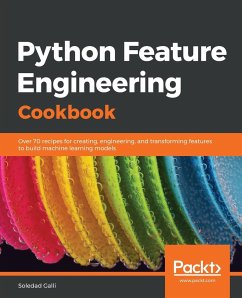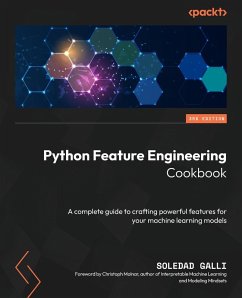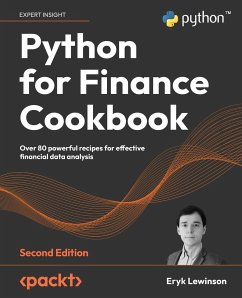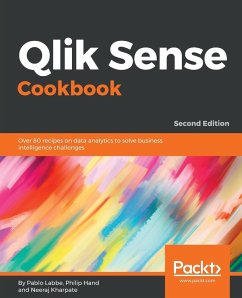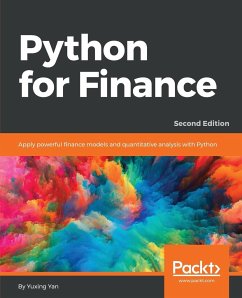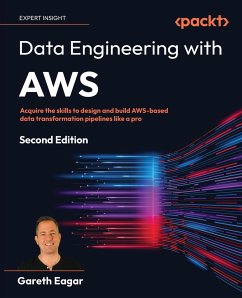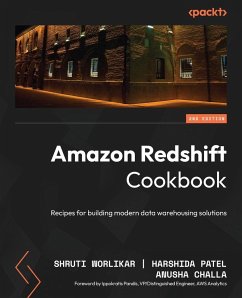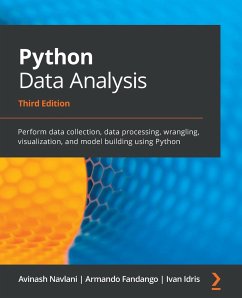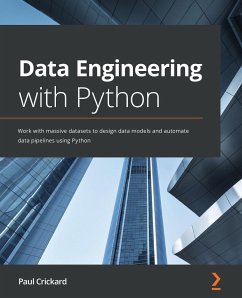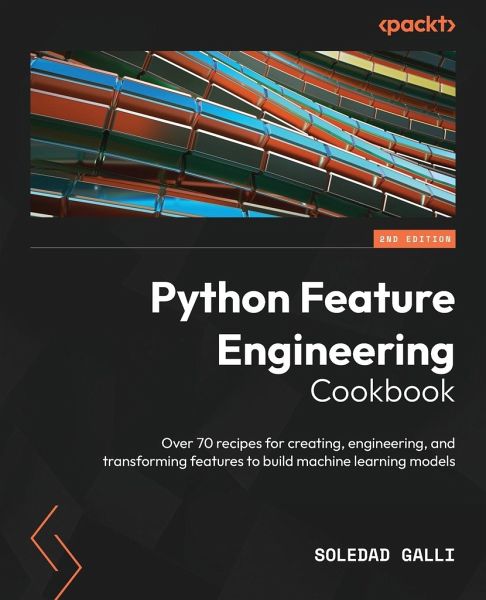
Python Feature Engineering Cookbook - Second Edition
Over 70 recipes for creating, engineering, and transforming features to build machine learning models
Versandkostenfrei!
Versandfertig in 1-2 Wochen
50,99 €
inkl. MwSt.

PAYBACK Punkte
25 °P sammeln!
Create end-to-end, reproducible feature engineering pipelines that can be deployed into production using open-source Python libraries Key Features:Learn and implement feature engineering best practices Reinforce your learning with the help of multiple hands-on recipes Build end-to-end feature engineering pipelines that are performant and reproducible Book Description: Feature engineering, the process of transforming variables and creating features, albeit time-consuming, ensures that your machine learning models perform seamlessly. This second edition of Python Feature Engineering Cookbook wil...
Create end-to-end, reproducible feature engineering pipelines that can be deployed into production using open-source Python libraries Key Features:Learn and implement feature engineering best practices Reinforce your learning with the help of multiple hands-on recipes Build end-to-end feature engineering pipelines that are performant and reproducible Book Description: Feature engineering, the process of transforming variables and creating features, albeit time-consuming, ensures that your machine learning models perform seamlessly. This second edition of Python Feature Engineering Cookbook will take the struggle out of feature engineering by showing you how to use open source Python libraries to accelerate the process via a plethora of practical, hands-on recipes. This updated edition begins by addressing fundamental data challenges such as missing data and categorical values, before moving on to strategies for dealing with skewed distributions and outliers. The concluding chapters show you how to develop new features from various types of data, including text, time series, and relational databases. With the help of numerous open source Python libraries, you'll learn how to implement each feature engineering method in a performant, reproducible, and elegant manner. By the end of this Python book, you will have the tools and expertise needed to confidently build end-to-end and reproducible feature engineering pipelines that can be deployed into production. What You Will Learn:Impute missing data using various univariate and multivariate methods Encode categorical variables with one-hot, ordinal, and count encoding Handle highly cardinal categorical variables Transform, discretize, and scale your variables Create variables from date and time with pandas and Feature-engine Combine variables into new features Extract features from text as well as from transactional data with Featuretools Create features from time series data with tsfresh Who this book is for: This book is for machine learning and data science students and professionals, as well as software engineers working on machine learning model deployment, who want to learn more about how to transform their data and create new features to train machine learning models in a better way.





